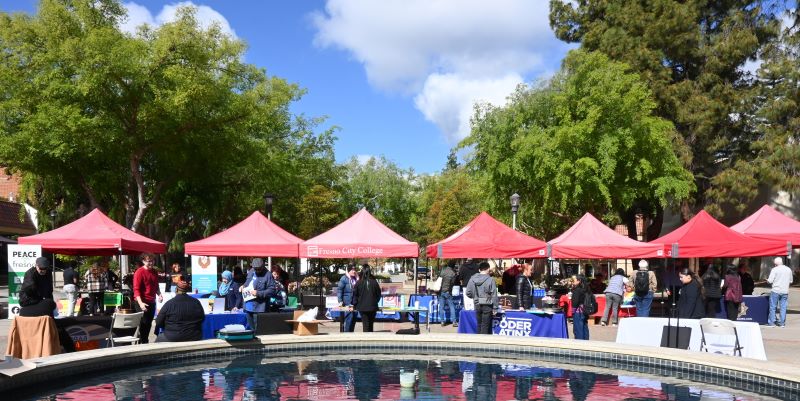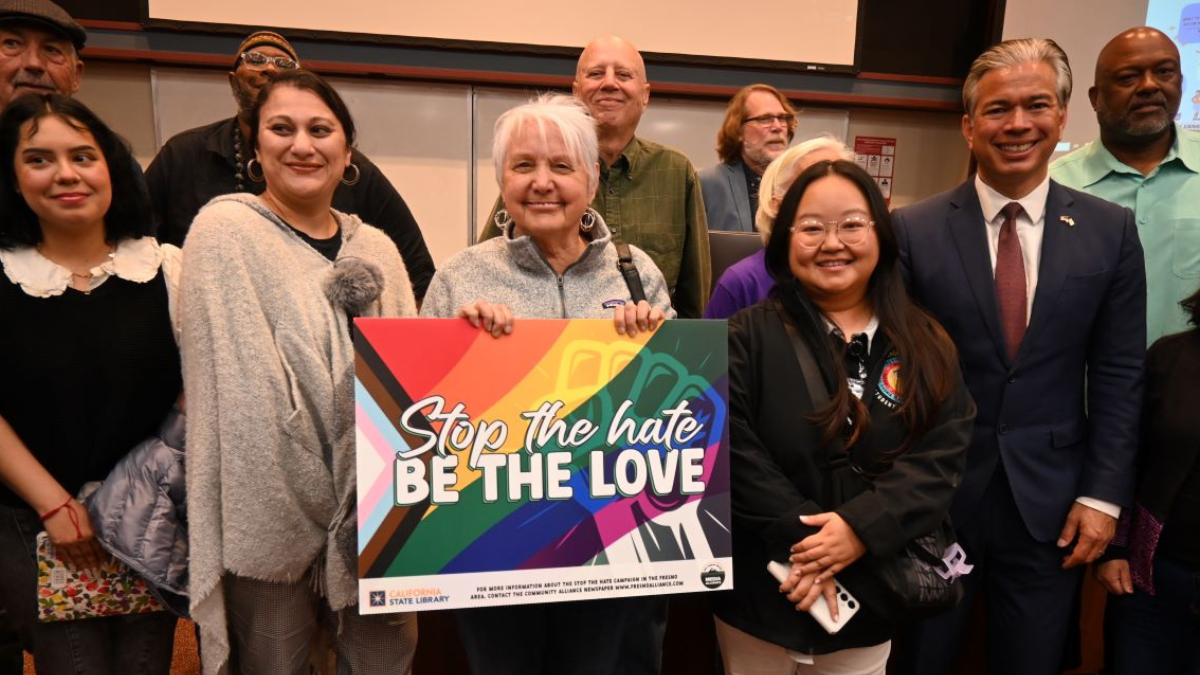FRESNO, California — An increasing number of hate crimes are being reported in California, but convictions continue to remain low, said California Attorney General Rob Bonta.
Speaking to Ethnic Media Services here on the sidelines of the United Against Hate summit at Fresno City College, Bonta noted that hate crimes are notoriously difficult to prosecute. “They require a proof of intent. By design, a hate crime must originate with the hate element, which is often difficult to establish,” he said.
“Hate crimes are an augmentation of sentencing: it is seen as something additional. You’re already charging assault or battery,” said Bonta, noting that a successful hate crime conviction might add 2 to 5 years to a sentence. He urged victims of a hate crime to gather up as much evidence as possible and to get details.
Low Conviction Rates
Last June, Bonta’s office released the 2022 Hate Crime in California Report. The report noted that reported hate crime events in the state increased 20.2%, from 1,763 in 2021 to 2,120 in 2022. Hate crimes targeting Black people remained the most prevalent and increased 27.1% from 513 in 2021 to 652 in 2022, while anti-Asian hate crime events decreased by 43.3% from 247 in 2021 to 140 in 2022.
Hate crimes in California involving a sexual orientation bias increased, by 29%, from 303 in 2021 to 391 in 2022.
But of the over 2,100 hate crimes reported in the state, only 52 resulted in hate crime convictions.
The majority of hate crimes reported never made it to court: just 456 cases were filed by district attorneys and elected city attorneys, according to the report.
Divisive Political Rhetoric
In his formal remarks at the summit, Bonta said hate was not a new phenomenon. “It’s been with us since time immemorial. We need to take care of each other, look after one another, and be committed to the proposition that hate against any one of us is hate against all of us, and it’s unacceptable.” He said he feared for his mother, amid the rise of violent hate attacks targeting AAPI elderly people.
The Attorney General tacitly referred to the rise in hate crimes over the past 7 months targeting both Jewish Americans and Arab Americans, brought on by the Israel-Hamas war. “The awful, unacceptable deaths of children and civilians that we’re seeing in Palestine and in Israel are unacceptable. And they’re affecting us here.”

The Trump Factor
Bonta also indirectly addressed Republican Presidential candidate Donald Trump, who has used very divisive rhetoric on the campaign trail. The candidate has repeatedly claimed that “immigrants are poisoning the blood of America,” and has promised to reinstate his “Muslim ban.”
“We have leaders who use the most toxic, xenophobic language. They give license to others.”
Bonta was asked a question by organizer Darren Miller, about the predicted chaos expected to ensue if Trump does not win. “One of the hallmarks of a democracy is the peaceful transfer of power. You cannot claim victory when you win, and malfeasance when you don’t,” said Bonta.
Distrust of Police
The United Against Hate summit April 6 was organized by the Community Alliance newspaper in collaboration with the Fresno Center. The daylong event brought together more than 20 non-profit organizations, who set up tables outside the venue to share their efforts towards ending hate. Mike Rhodes, executive director of the Community Alliance, told EMS that Fresno and neighboring cities were rife with hate activity, much of which is unreported.
“A lot of people here don’t trust the police,” said Rhodes, adding that when hate crimes and incidents are reported, they often go unnoticed. The Fresno Police Department did set up an information table at the event.
The morning featured four concurrent workshops, including tools for bystanders witnessing a hate crime; what to do if you’re a victim of a hate crime; and a “know your rights” discussion led by the Council on American Islamic Relations. Amir Brooks, who presided over the workshop, recalled a recent event in which he was stopped by police in the small town of Clovis, California.
Walking While Black
Brooks is Black and disabled. “I was hobbling to the store. Within a couple of minutes, police stopped me, shined a light in my face, and asked a bunch of questions,” he said.
“When I got to the store, I was stopped by two more cops, who again questioned me, and then checked out my answers against the ones I had given the other cops.”
“As I walked home, the cops followed me. They had obviously identified me as a suspect without any reason,” said Brooks.
This resource is supported in whole or in part by funding provided by the State of California, administered by the California State Library in partnership with the California Department of Social Services and the California Commission on Asian and Pacific Islander American Affairs as part of the Stop the Hate program. To report a hate incident or hate crime and get support, go to CA vs Hate.





